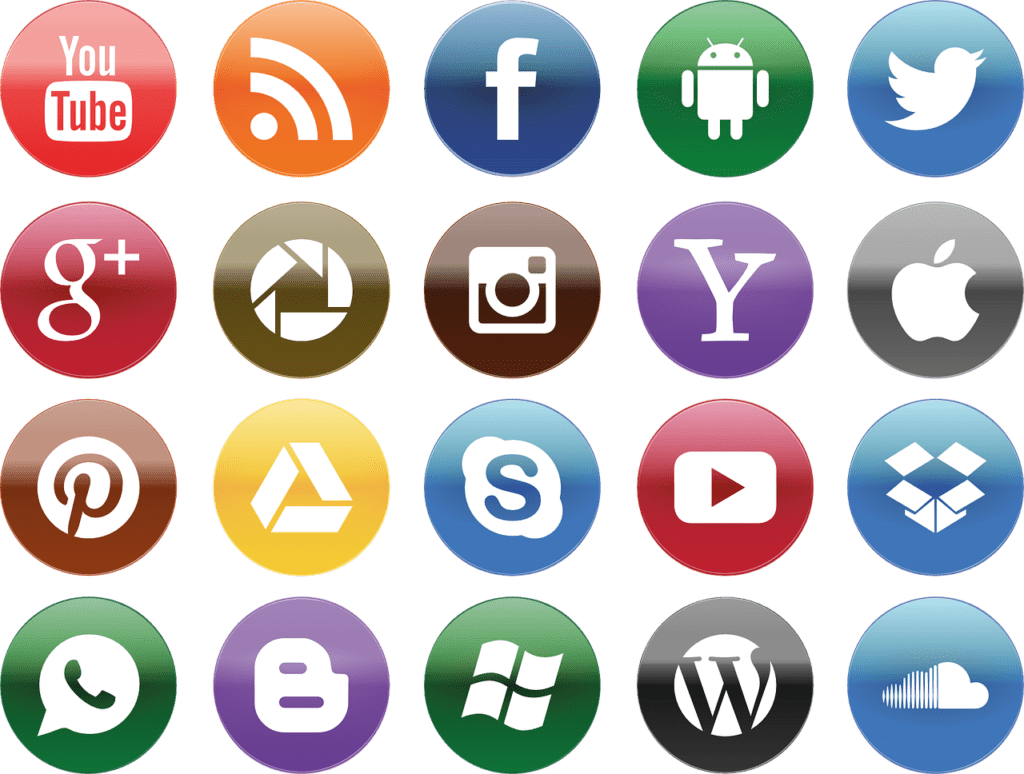
In the realm of small business, time is precious, and so is the potential of social media.
Here’s a comprehensive insight into optimizing each platform for small business owners.
For small businesses, strategizing social media marketing is paramount.
Unlike larger corporations with dedicated resources, small businesses need to be agile, creative, and efficient.
Mere expenditure won’t resolve challenges; instead, an astute approach to employing social media is essential for engaging target audiences.
Here’s an inclusive collection of social media marketing insights tailored to elevate your small business in 2023.
Why Usе Sociаl Mеdia for Your Small Business
If you own a business, delving into research on social media marketing is time well spent, and here’s why. Presently, there are a staggering 4.2 billion active social media users. This is nearly twice the number from five years ago in 2017. These users spend an average of 2 hours and 25 minutes daily on social platforms
Furthermore, social media is no longer solely the domain of major corporations. Impressively, 71% of small to mid-sized businesses embrace social media for marketing, with 52% posting content daily.To remain competitive, establishing an online presence is non-negotiable. Here are five compelling reasons to integrate social media into your business strategy.
Reaching a Wider Audience:
Garnering new customers is an arduous task. You can craft impeccable products and design a captivating website, but anonymity renders these efforts futile. Social media bridges this gap, enabling small businesses to vie for attention against larger entities. Engaging content on social platforms can extend your reach and motivate audiences to opt for your products.
Enhancing Brand Visibility:
Skillful execution of a social media strategy can notably heighten your brand’s visibility. When your content resonates, users share it with their followers, exponentially expanding your reach and exposure. A consistent online presence engrains your brand in the minds of potential customers, potentially leading to conversions
Deeper Customer Insight:
How well do you comprehend your customers? Social media goes beyond demographic information, providing granular insights into their preferences, behaviors, and aspirations. Leveraging this valuable data can refine your social media strategy, ensuring content resonates with your target demographic.
Learning from Competitors:
Your competitors are already online, and analyzing their strategies is insightful. Studying their practices can inspire ideas for your own approach. More significantly, understanding their successes and failures informs your social media marketing strategy’s foundation.
Cultivating Customer Relationships:
Social media’s purpose transcends posting aesthetically pleasing content and witty captions. It’s about nurturing customer relationships. These connections drive sales and foster word-of-mouth recommendations. Demonstrating genuine concern for customer experiences fosters lasting relationships, propelling your content within social algorithms and garnering new exposure.
Considering that the average internet user possesses 8.4 social media accounts, engaging them across multiple platforms for distinct purposes is effective. For instance, Facebook could be harnessed for audience growth and lead generation, while Twitter becomes a channel for customer service.
Let’s delve into each platform’s benefits for small businesses.
Optimal Social Media Platforms for Small Businesses
Now that you comprehend how to utilize social media for your small business, let’s delve into the platforms.
While exploring platforms for your social media strategy, avoid assuming where your audience spends their time.
Target Gen Z? Don’t dismiss Facebook; a quarter of its users fall in the 18-24 age bracket.
For baby boomer targeting, social media might not seem pivotal, but it is. Facebook and Pinterest prove popular among boomers. Facebook’s fastest-growing audience segment comprises those over 65.
Platform selection need not be all or nothing. Leverage various channels to connect with different audiences or meet diverse business objectives. Here are the key platforms for small businesses.

Facebook
Regardless of your personal views, Facebook remains the global leader in social media. With over 2.9 billion monthly active users and 200 million businesses, it offers unparalleled reach.
Reasons for Facebook’s suitability for small businesses:
Wide Demographic Spectrum: Spanning age groups, genders, and interests.
Multifunctional: Facilitates creating pages, advertising across Meta products, audience tracking, and e-commerce within a single platform.
Comprehensive Customer Journey: Supports the entire customer service journey, from initial contact to final sale.
When contemplating Facebook for your small business, consider:
Target Audience: Most engaged users fall within the 18-44 age bracket. Align your audience with this range for optimal outcomes.
Business Goals: Determine your objectives—brand visibility via a Facebook Page, product sales through Shop or ad campaigns. This guides platform suitability.
Time Allocation: Effective engagement demands 1-2 daily posts. Assess your capacity for consistent content creation.
Instagram
Instagram thrives as a niche-focused platform. Ideal for fashion, food, or film industries, it predominantly attracts 18-34-year-olds.
Why Instagram suits small businesses:
In-App Shopping: Seamlessly integrates purchasing from posts, Reels, and Stories.
Visual Appeal: Best for fashion, beauty, travel, and food sectors due to its visual nature.
High Engagement: Users spend an average of 11 hours per month on the app.
When considering Instagram, ask:
Visual Presentation: Since Instagram is visual-centric, focus on appealing visuals.
Content Consistency: Maintain a steady presence; 3-7 weekly posts are recommended.
Content Quality: To excel, create compelling content; else, another platform might be more suitable.
Twitter
Twitter possesses broad appeal. The 9th most visited global website with over 200 million daily active users, it entices engaged shoppers.
Why Twitter suits small businesses:
Conversational: Driven by conversations, fostering engagement with customers and businesses.
Real-Time: Instantaneously relays current events and updates.
Hashtag Integration: Leveraging hashtags widens content exposure.
When considering Twitter, ask:
Audience Presence: Ensure your audience frequents Twitter.
Content Scope: While ideal for swift news sharing, diverse content requires alternate platforms.
Resource Allocation: Effective engagement necessitates 1-5 daily tweets.
TikTok
TikTok’s allure extends beyond Gen Z. Well-established brands outside this demographic experiment on the platform.
Why TikTok benefits small businesses:
Equal Opportunity: High-quality content surpasses budget constraints.
Creativity Focus: Emphasizes inventive, out-of-the-box content.
Virality Potential: Exceptional content can reach millions.
When pondering TikTok, ask:
Video Creation Time: Consistent posting requires time investment.
Target Audience: Tailor to 18-24 demographic.
Creative Ideas: Ideation for engaging content fuels success.
Pinterest
From catalog to visual search engine, Pinterest’s transformation is remarkable. Users don’t just find ideas; they make purchasing decisions.
Why Pinterest is apt for small businesses:
Positive Space: 8 out of 10 users feel positive on Pinterest.
Visual Medium: Ideal for product visuals.
Audience Reach: Attracts users actively seeking similar products.
When evaluating Pinterest, ask:
Visual Content Volume: High-quality visuals are essential.
Audience Relevance: Cater to the predominant female, 25-34 demographic.
Product Availability: Offer products for the active shopping audience.

YouTube
The pinnacle of video-sharing networks, YouTube’s massive audience of 2.56 billion offers substantial promotional potential.
Why YouTube is advantageous for small businesses:
Website Traffic Boost: Videos with website links direct traffic.
SEO Enhancement: YouTube videos often appear in Google searches.
Brand Awareness Amplification: Engaging video content fosters brand recognition.
When contemplating YouTube, ask:
Content Creation Resources: High-quality videos require suitable equipment and editing skills.
Unique Messaging: Distinctive content amid YouTube’s vastness is crucial.
Consistency Commitment: Regular video uploads maintain viewership.

Effective Social Media Practices for Small Businesses
Upon pinpointing suitable platforms, commence posting using these social media tips.
Plan Ahead: Haphazard posting is common, but a content calendar minimizes stress.
Outline content type, date, platform, descriptions, links, tags, and hashtags for a cohesive strategy.
Schedule Posts: Utilize scheduling tools like Hootsuite to automate posts, conserving time.
Foster Community: Beyond posting, engage with customers. Respond to comments and questions, fostering community rapport.
Embrace Trends: Adapt to prevailing trends, ensuring your content remains relevant.
Leverage Social Commerce: Utilize platforms’ commerce features, facilitating direct product sales.
Analyze for Progress: Use analytics to gauge engagement and adjust strategies accordingly.
Social Media Management Tools for Small Businesses
Amid multitasking, social media management tools streamline your efforts.
Unlock the potential of your small business through efficient social media management.